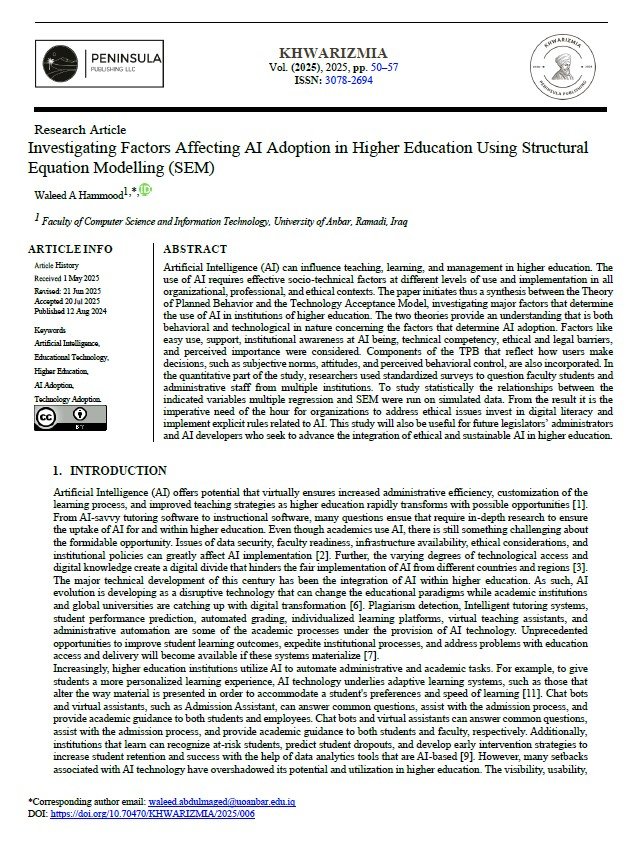Investigating Factors Affecting AI Adoption in Higher Education Using Structural Equation Modelling (SEM)
Main Article Content
Abstract
Artificial Intelligence (AI) can influence teaching, learning, and management in higher education. The use of AI requires effective socio-technical factors at different levels of use and implementation in all organizational, professional, and ethical contexts. The paper initiates thus a synthesis between the Theory of Planned Behavior and the Technology Acceptance Model, investigating major factors that determine the use of AI in institutions of higher education. The two theories provide an understanding that is both behavioral and technological in nature concerning the factors that determine AI adoption. Factors like easy use, support, institutional awareness at AI being, technical competency, ethical and legal barriers, and perceived importance were considered. Components of the TPB that reflect how users make decisions, such as subjective norms, attitudes, and perceived behavioral control, are also incorporated. In the quantitative part of the study, researchers used standardized surveys to question faculty students and administrative staff from multiple institutions. To study statistically the relationships between the indicated variables multiple regression and SEM were run on simulated data. From the result it is the imperative need of the hour for organizations to address ethical issues invest in digital literacy and implement explicit rules related to AI. This study will also be useful for future legislators’ administrators and AI developers who seek to advance the integration of ethical and sustainable AI in higher education.
Article Details

This work is licensed under a Creative Commons Attribution 4.0 International License.
